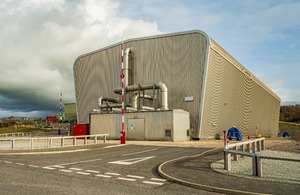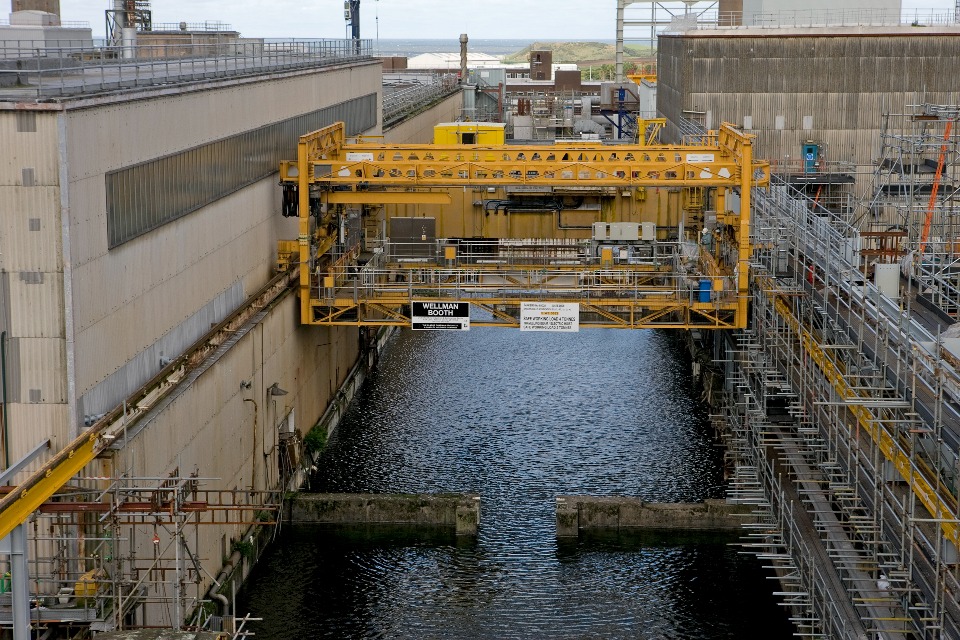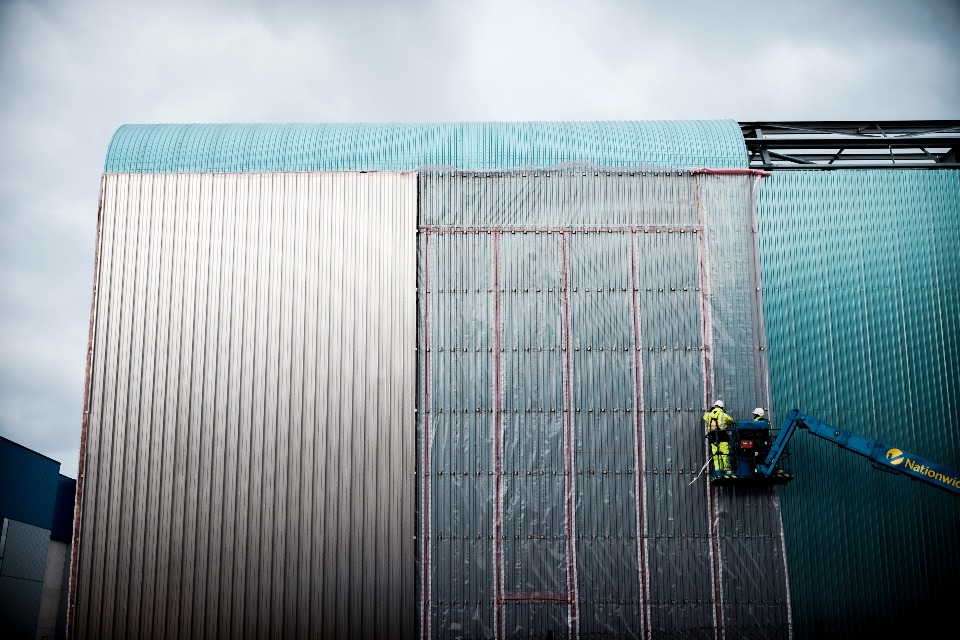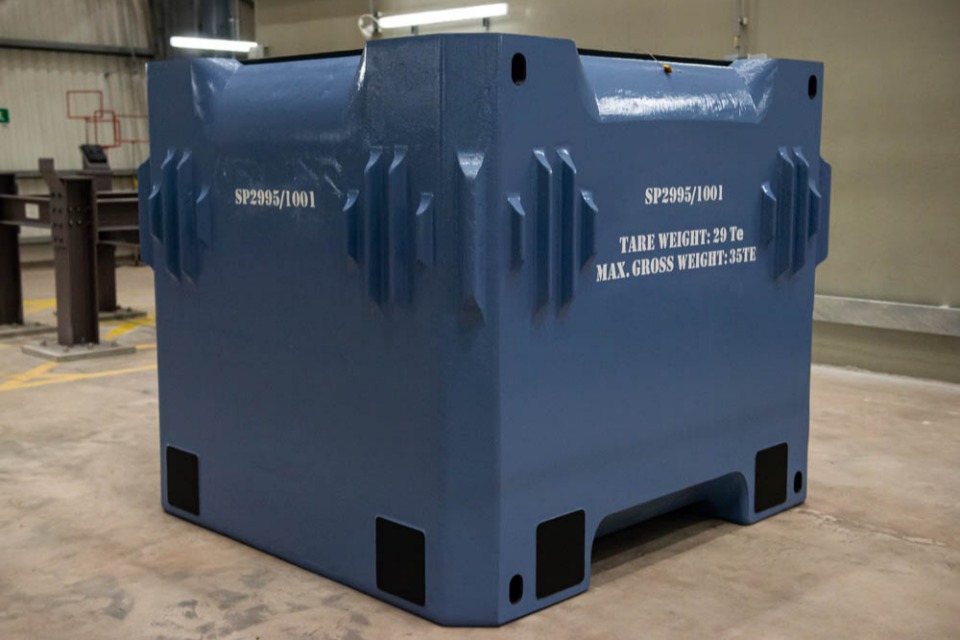What is the Interim Storage Facility?
It’s a key building on the Sellafield site that stores waste from one of our highest hazard legacy waste ponds.

The Interim Storage Facility on the Sellafield site
The challenge
One of our biggest challenges at Sellafield is the need to take waste out of our legacy silos and ponds on the Sellafield site.
One of those ponds, The First Generation Magnox Storage Pond wasn’t built with decommissioning in mind and issues in the 1970s when fuel started to corrode meant we couldn’t remove it easily.

The First Generation Magnox Storage Pond
The solution
To build a new facility on the Sellafield site, to safely store legacy waste.
This new facility is the Intermediate Storage Facility (ISF).
ISF will receive Intermediate Level Waste in self-shielded boxes from the First Generation Magnox Storage Pond.
The facility itself, is a steel framed portal structure with an internal shield-wall, crane and simple ventilation system.

The Interim Storage Facility
The project used an existing design, that didn’t have any safety mechanisms built in. The principal safety functions are performed by the self-shielded storage boxes themselves.

An image of a self-shielded box
The facility was built on repurposed land to the south-east of the Sellafield site and took 9 months to build.
It came in £14 million under budget when construction was completed in 2018 and is now starting active operations.


The facility will be used exclusively for the First Generation Magnox Storage Pond waste – initially zeolites, then other types of waste in the future (for example: bit bins, fuel, miscellaneous intermediate level waste etc.)
The positives to using self-shielded boxes, is that as long as the waste fits in the box, all hybrid wastes can be mixed together.
So, in the long run reducing the number of boxes being stored.
| Benefits: | Supporting retrievals from the First Generation Magnox Storage Pond |
| Status: | Active operations started 2024 |
| Collaboration | Delivery Team - Infrastructure Strategic Alliance |
Facts – how the project saved time and money
-
project went straight into detailed design, omitting the requirement for the concept and preliminary design gates
-
by carrying out early reviews on safety function class, driving quality grading and ensuring that the project used commercial industry standards for all components of the build
-
ensuring lifetime records delivered value adding documentation only, aligned to external industry standards
-
benchmarking all aspects of the project to external industry standard
-
using an Interim Storage Facility design already used by Magnox, at their Berkley and Bradwell sites
Facts - The facility
-
the outer skin of the building has a working life of 50 years
-
the bedrock it’s built on is sloping, meaning the concrete floor of the vault is thicker at one end than the other so that the boxes are stored on a perfectly flat floor. At its thickest end the concrete is 1.7 metres deep
-
the boxes are placed in the vault on a grid in a specific location. The grid is 7 boxes wide and 25 boxes long, stacked up to 3 boxes high. The crane is fully automated and knows exactly where each box goes. A bar code system is used to scan each box and tell the crane where to place them
-
the building is temperature controlled and always kept between 15 and 21 degrees C
-
the building is shaped like a loaf of bread so that water can run off it into drains. There are no gutters, therefore reducing ongoing maintenance.
Timeline
- construction – Interim Storage Facility started in 2015
- in-active commissioning – started February 2018 completed in January 2022
- operational - March 2024
Functionally capability
-
storage of 518 self-shielded waste containers
-
operational period: Between 7:30am to 3:30pm, 330 days of the year
-
packages to be stored in the facility for a period of 50 years from the start of active commissioning
-
Zeolite skips will be sent to the Box Encapsulation Plant within 10 years, where they will be processed and stored.